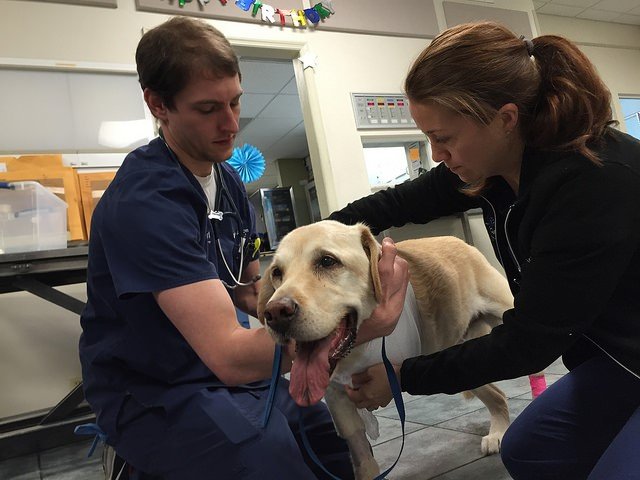Ask the Vet: Considering Pet Insurance
May 9, 2018
When bringing home a new pet, most people have a variety of things they need to acquire, from a new, soft bed to plenty of nutritious food.
We at BluePearl Veterinary Partners would love for you to add one more item to that list: pet insurance.
As the cost of health care continues to climb for humans, medical care for our four-legged companions can be taxing on your wallet as well. By purchasing pet insurance, you’ll have extra resources at your disposal in case your pet suffers an emergency or contracts a complex illness.
If you don’t have pet insurance, you’re not alone. About 68% of all U.S. households own pets, but only about 1 percent of those pets are insured, according to the North American Pet Health Insurance Association.
Not all plans are the same, so it’s really important to do your research. The average cost of pet insurance for dogs is around $22 per month, while insurance for cats is about $16 per month, according to Consumer Reports.
Like insurance for humans, you can choose different levels of coverage, with each plan costing a monthly or annual premium, based on how much coverage you choose. Unlike human health insurance, there’s not typically a copay, where you pay a certain percentage when you visit the doctor.
Instead, you’ll pay the full amount for the veterinary care and then submit a claim to the insurance company for reimbursement.
Most plans cover 70 to 90 percent of procedures, which is significant when you’re looking at $2,500 for a fractured tooth or upwards of $6,000 for knee surgery.
Be sure to read the fine print: Some plans don’t cover wellness visits, vaccines or pre-existing conditions, so it’s best to get insurance for your pet as soon as possible. If you’re looking to compare plans, Pet Insurance Review has a very helpful chart, which you can view here.
As veterinarians, we’re heartbroken when we see clients who have to make the devastating decision to euthanize their pet for economic reasons. Pet insurance can give you peace of mind as well as more years with your beloved companion.
If you have more questions, we would encourage you to have a discussion with your your family veterinarian. He or she can give you some guidance on this important topic.
By Dr. Cathy Meeks, BluePearl Group Medical Director

